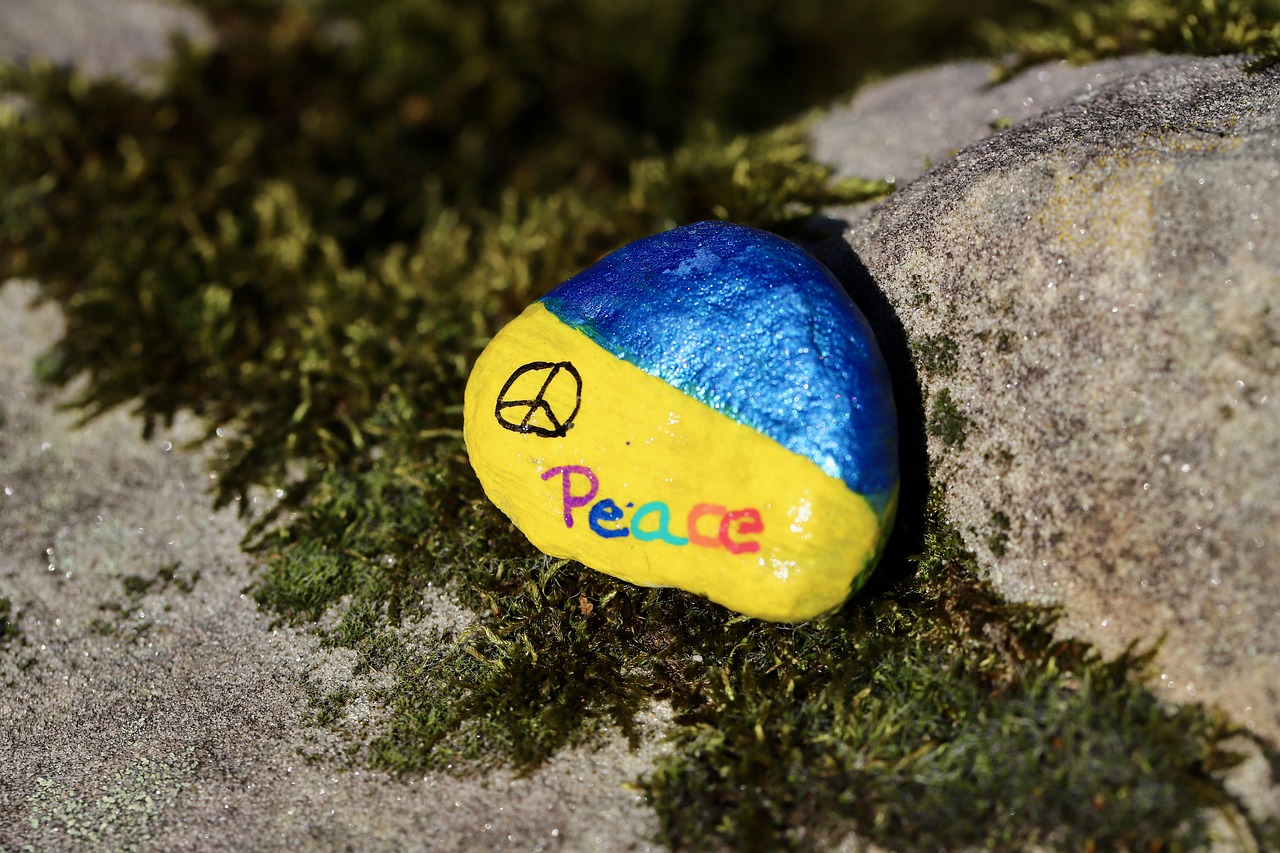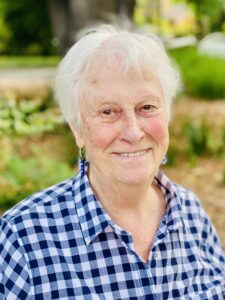- All
- Wisdom
- We Stand on Their Shoulders
- Vocation
- Uncategorized
- Stories Seldom Heard
- Spirituality
- Social Justice
- Prayer
- Peace
- Oneness
- Love
- Letting Go
- Lent
- Joy
- Inspirational Images
- Hope / Healing
- Holy Week
- Gratefulness
- God's Presence
- General News Stories
- Forgiveness
- Finding God
- Faith
- Easter
- Dominican Saints
- Discipleship
- Courage
- Christmas
- Catholic Sisters Week
- Care of the Earth
- Blessing
- Beauty
- Advent
- #justiceOPportunity
“Who are you? What do you have to say for yourself?”
Sr. Patricia Bruno, OP

306th Edition – January 2025
John 1:19-28: “Who are you? What do you have to say for yourself?”
 Welcome to Stories Seldom Heard. “Who are you? What do you have to say for yourself?” These are big questions. January 3rd is the Feast of St Basil the Great. St Basil holds a particular place in my heart these days because the sisters, laity, and priests of the Order of St Basil are engaged in dangerous and extraordinary ministries in Ukraine. Along with many lay people, Dominican sisters and priests, and religious and secular organizations, their daily courage is astounding.
Welcome to Stories Seldom Heard. “Who are you? What do you have to say for yourself?” These are big questions. January 3rd is the Feast of St Basil the Great. St Basil holds a particular place in my heart these days because the sisters, laity, and priests of the Order of St Basil are engaged in dangerous and extraordinary ministries in Ukraine. Along with many lay people, Dominican sisters and priests, and religious and secular organizations, their daily courage is astounding.
“Who are you? What do you have to say for yourself?”
These questions come from the Gospel reading on the Feast of St Basil. These are the questions some of the Jewish leaders ask John the Baptist. They are also the questions that Chris Herlinger raises with the Ukrainian people in his book Solidarity and Mercy (1). Herlinger is an international correspondent for the National Catholic Reporter and an award-winning journalist. I hope that you will choose to read Solidarity and Mercy. Herlinger and those who were interviewed offer us more than statistical information about the Ukrainian people and the current war with Russia. They asked us for a response to the same questions they had been asked. “Who are we? What do we have to say for ourselves?”
The story of Ukraine is particular, but the questions of war, famine, violence, and trauma stretch across the globe and play out in our cities and nation. Herlinger crafts a brief history of Ukraine and its relationship with Russia. In 2014, the Russians invaded Crimea and later the eastern Donbas region. As a result, refugees fled to Poland and other countries. Many still have “searing memories of the bombing of schools, theaters, hospitals, unburied bodies in the street, children huddled with their mothers in crowded basements, and the horrific experience of rape” (p. 3).
Russia’s 2014 invasion of Ukraine sets the stage for the present war. Solidarity and Mercy is packed with personal stories that expose the atrocities and tragedies of daily life amid war. The interviews and conversations sharpen our understanding of the realities of war as it rips individuals, families, and nations apart. Truly Ukraine is a “war-torn” country. The war in Ukraine is daily and traumatic. Fear and hope, doubt and faith, life and death are choices made many times a day. As we listen deeply to the stories and insights, we have the opportunity to understand “close-up” the tragedies that are changing not only the lives of our sisters and brothers in Ukraine but our world as well. The questions that arise beg us to ponder the meaning and consequences of the war in Ukraine. They also empower us to think beyond Ukraine to the traumatic effects war, famine and violence have on the global community. The Ukrainians’ struggle for freedom has a tsunami effect throughout the world. I hope that by listening to the Ukrainian people, we will not only grow in understanding of the Ukrainian people but also make choices to be in solidarity with them. For truly as many of the Ukrainian women and men who were interviewed said, “We are fighting the war for the world.”
“Who are you? What do you have to say for yourself?”
Ukraine is important to the international community. It is a major exporter of wheat and sunflower oil accounting for 40% to 60% of the global supplies. Countries on the brink of famine like South Sudan and other African countries are particularly dependent on those exports. There is a concern that after the war, because of the heavy bombardment, the soil will have been contaminated and hinder Ukraine’s former productivity. It will take years and international support to rebuild the necessary infrastructure that could feed, house, educate, and heal the Ukrainian people.
“Who are you? What do you have to say for yourself?”
Solidarity and Mercy tells the story of the power of Christian humanitarian efforts for and in Ukraine, a story that could not be told without including Ukraine’s complex relationships with their neighbors. Since World War II, Ukraine and Po-land have had a fractured relationship. One sister stated, “Relationships between Poland and Ukraine were not always straight, not always good (p.117). However, at this time in our histories both countries have come “to an understanding of neighborhood” because both fear Russia. The Polish people opened their homes and hearts to the many refugees who arrived with few possessions in hand. It speaks of solidarity and mercy, compassion and extreme generosity. It also begs the question: how long Poland and other nations can continue to support the people of Ukraine?
“Who are you? What do you have to say for yourself?”
The question of forgiveness is asked of many people. The responses are intense and the question seems premature. Most of those interviewed spoke of forgiveness as a process: a process that could begin after the war. Amid profound suffering and injustice, it is important to focus their energies most immediately on protection and survival. Many also acknowledged that the hatred they felt toward the Russian government was a prison they would have to break out of for their health and development as a people and a nation. Forgiveness is spoken of as a future possibility, but certain conditions would be required. One of the most recognized conditions is that Russia would have to admit its mistake.
“Who are you? What do you have to say for yourself?”
The question of hope is never far from the conversations. Grace and hope force their way through fears and tears. “We choose what we want to see and we see God’s presence every day. I know God is with those who are suffering and with those who are doing something good. I know God cries with the people who cry. I see a God who has suffered, and I know God’s presence is among us (p. 151).
Profound faith is the grounding that enables exhausted individuals and families to rise each day with words of kindness amid disaster. Prayer is a constant. It is a way to unite people. Some pray the rosary. Others pray the psalms and meditate. There are interfaith prayer gatherings. There are prayers for the Russian people, many of whom believe the lies they have been told. Private prayer and small diverse faith communities spring up in the most unexpected places and times. Many choose to turn their hearts and minds toward God. They believe as we do that God sees our tears and cries with us. As Pope Francis has said, struggle and pain are the birthplaces of hope.
“Who are you? What do you have to say for yourself?”
My answer to that question is the following. Even though it is rather foolish of me to try to capture the power of the insights and questions that Solidarity and Mercy offer, I hope my attempt will encourage you to read it. It is, as I said earlier, Ukraine’s story, but the questions it asks those being interviewed require an answer from us– both individually and as a nation.
“Who are you? What do you have to say for yourself?”
This is the testimony of John the Baptist when the Jews from Jerusalem sent priests and Levites to him to ask him, “Who are you?” What do you have to say for yourself?” John said: “I am the voice of one crying out in the desert,
‘Make straight the way of the Lord,’ as Isaiah the prophet said.”
Sister Lucia Murashko, a sister of St Basil the Great, will have the last word. Let us pray that her voice and the voices of the Ukrainian people will be heard and that we individually and collectively will respond. “God wants us to live in peace, but the responsibility is ours…If I live today, it means a victory. It’s a victory over death… We are not a rich community of sisters…we open our doors to people and we open our hearts, to serve the best we can. Every day we ask God in our prayers, ‘What can you do for us today?’” (p. 155)
Footnotes refer to the book by Chris Herlinger
Solidarity and Mercy: the Power of Christian Humanitarian Efforts in Ukraine, Chris Herlinger, Morehouse Publishing, New York, New York, 2024.
